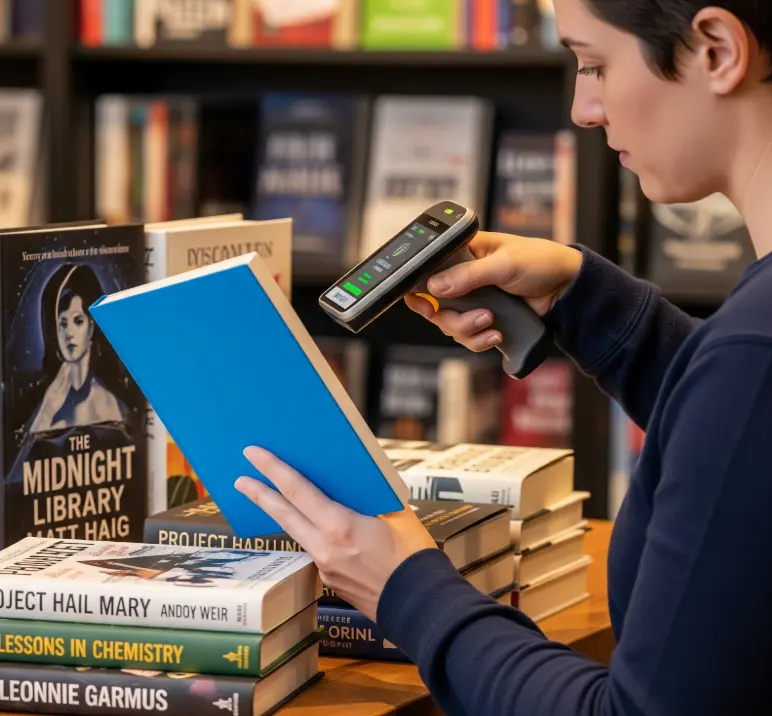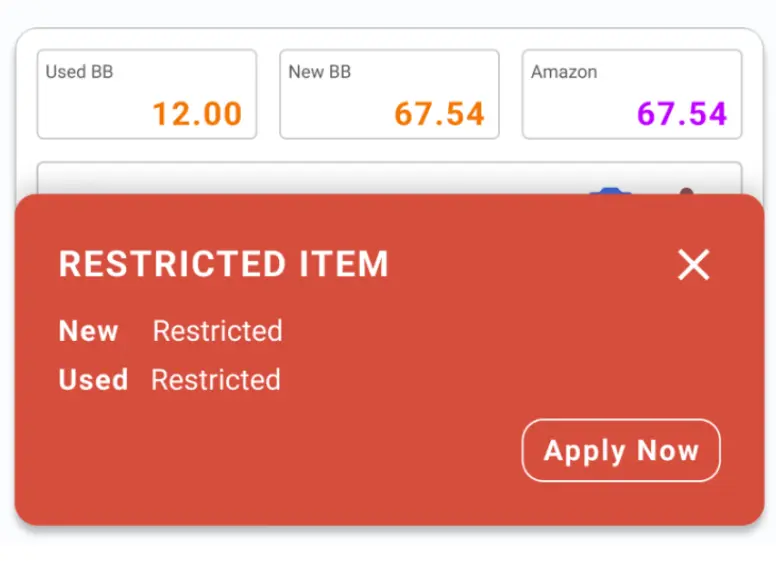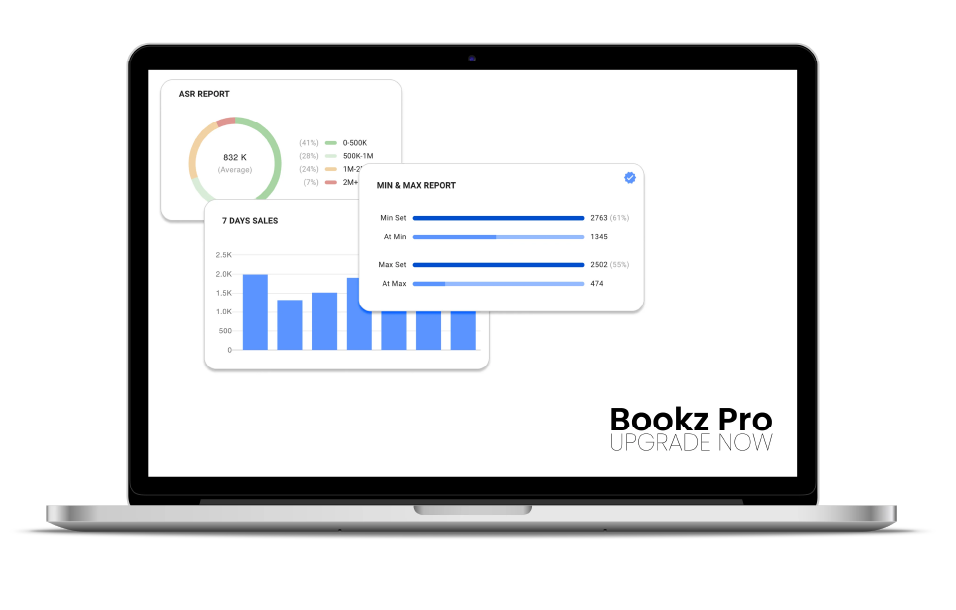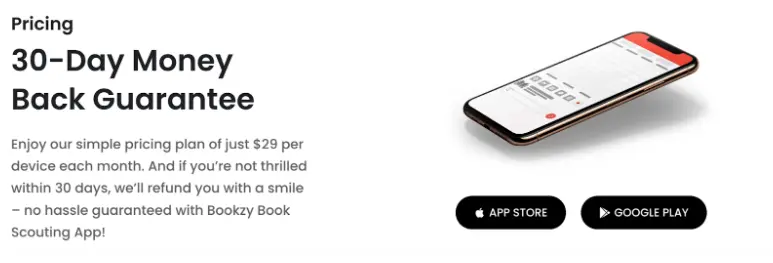A Reseller’s Guide to Efficient Book Scanning in 2025

Walking through your local goodwill for the third time this week, scanning the same fiction books you’ve already checked twice. Sound familiar? This common pattern kills a decent hourly rate and wastes valuable sourcing time.
Scanning the right way saves time and puts more money in your pocket. By the end of this guide, you’ll know where and when to scan, book categories to skip, and which tools to trust. You’ll turn sourcing trips into consistent income opportunities rather than getting stuck scanning books that never turns to profit.

When Does Fresh Inventory Hit the Shelves?
Most thrift stores don’t restock at random. They follow routines — and the resellers who figure them out get first pick on the good stuff.
Many stores use color-coded tags or stickers to identify new arrivals. A simple conversation with staff often explains their restock routine:
- Ask the book manager or any employee: “What color represents this week’s new inventory?”
- Focus scanning efforts only on books with the current color code
- Track the color each week, like blue this week, red next.
Log each thrift store trip with key details — date, books bought, dollars spent, and hours worked etc. A simple spreadsheet or even your phone’s notes app works fine. This way, you can look back later and evaluate performance across many trips, avoid wasting time at low-yield stores, and visit the profitable ones more often.
This can noticeably cut down scanning time, while still picking up most of the profitable books.
Identify Restocking Schedules
Many major chains tend to restock several times a week. Some often fall on weekdays. Smaller independent stores restock once a week, or when enough new donations come in. Go right after restocking to grab the freshest books.
Some books make money. Others just waste your book scanning time.
Categories to Reduce (Low ROI)
- Children’s picture books (those under $5 selling price)
- Young adult fiction (saturated market)
- Mass-market paperback thrillers and mysteries
- Outdated self-help books
- Generic romance novels
Categories to Prioritize (High ROI)
- Textbooks: Even older editions often maintain value
- Professional and trade books: Contractor guides, medical references, legal texts
- Specialized cookbooks: Professional chef books, ethnic cuisines, technique-focused
- Academic non-fiction: University press publications in history, science, philosophy
- Reference materials: Field guides, technical manuals, industry handbooks
The pattern is clear: specialized knowledge commands higher prices and steadier demand.
Master Book Sales Strategically
Large book sales move fast, so a focused book scanning strategy matters.
The Priority System
When doors open, everyone targets the same high-value sections. A smart plan beats random browsing every time:
- First 30 minutes: Textbook and academic sections only
- Next 30 minutes: Reference materials and professional books
- Remaining time: Other categories if competition allows
Most resellers do the opposite. They go for easy books first while others grab the good stuff.
Pro Tip: Bring a powerbank so you don’t run out of battery for the Bluetooth scanner or your phone. Remember that some book sales only accept cash. Set a clear target profit or ROI, and know your top three categories before the doors open. This helps you move fast and stay focused.
Learn from Common Mistakes
Many new book resellers make the same mistakes. These mistakes hurt their profits.
- The “Scan Everything” Trap: Focus your book scanning on high-probability sections, like textbooks, trade books, and niche cookbooks. This can triple your rate.
- Wasting cash on books you already own that don’t sell is a silent profit drain: If you’ve already got three copies of a 1M sales rank book, the last thing you need is another. Without proper tracking, it’s easy to double-buy dead inventory. That’s why using an app with true inventory sync matters.
- The Restriction Oversight: Buying restricted books is an easy way to lose money. If your account is restricted, that book just sits as dead stock that you can’t sell. You wouldn’t know unless you check. That’s why scanning with account-specific restriction checks is so important. The best apps even let you apply for approval in the store, so you’re sure before you buy. Bookzy Mobile app is the only book scanning app that allows you to check restrictions and allow you to apply to sell within the app.

All in One Software
for Book Sellers
Scout Better – List Faster – Reprice Smarter
Over 30% Business Growth
Achieved by Our Clients

Best Book Scanning Tools to Boost Profit
The right scanning app directly impacts efficiency and profitability. Generic apps miss important details that can cost you money.
Essential Features That Matter
- Restricted Books Warning: Prevents purchasing unsellable books and shows when you can apply for approval to sell.
- Real-Time Inventory Tracking: Eliminates costly duplicate purchases.
- Sold Today Items: Sort or filter books by price, average sales rank, sales channel, or condition.
Professional support: Live assistance when questions arise during sourcing.
Other apps like Scoutiq or Scoutly miss these important features.
Stop Losing Money on Preventable Mistakes

Scanning the wrong and buying restricted books kills your profit rate. Bookzy Mobile app helps you avoid these common mistakes. It checks restrictions, tracks inventory, and shows sales history. This includes live support from experts in book reselling.
Want to improve your book scanning strategy? Get a quick overview or jump on a Zoom call and we’ll walk you through it.
Conclusion
Efficient book scanning and sourcing turns reselling into a real profitable business. Maximize your results with scanning methods that save time and improve accuracy. Master store restocking patterns and time your visits. You can then increase your chances of finding fresh, high-value inventory.
Focusing on high-ROI categories, e.g., textbooks, makes your time more profitable. Avoiding low-value sections will help prevent wasting your efforts. Learn from common mistakes. Don’t scan every book. Avoid buying duplicates and restricted books. This allows you to refine your approach and protect your margins.
Ultimately, the difference between struggling and successful resellers isn’t luck. It’s a strategic approach.
Frequently Asked Questions
Many major chains tend to restock several times a week. Independent stores restock once a week or when they get enough donations. Asking staff directly often reveals specific schedules.
New resellers often waste time scanning every book instead of concentrating on categories that are more likely to be profitable. This usually leads to a lot of effort spent on low-value inventory with little return.
Use a reliable book scanning app like Bookz Pro. Verify restrictions against your specific Amazon seller account. This will prevent you from listing restricted books you’ve already purchased.
No. Book sales offer excellent profit opportunities when approached with the right strategy. Arrive early, leave late. Focus on high-value sections first, and use efficient scanning systems. Many competitors lack systematic approaches.
Experienced resellers can sometimes earn over $50 per hour, while beginners may start below minimum wage. With the right strategies, tools, and experience, results improve significantly.”



